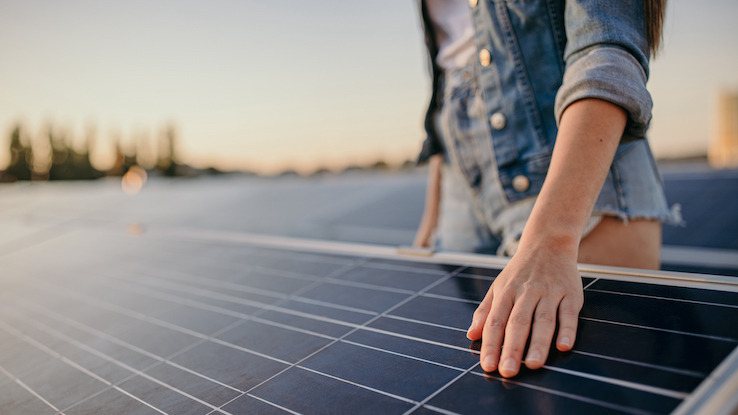How to Maximize the Benefits of Home Solar Panels

Are you looking to reduce your monthly utility bills by adding solar panels to your home? If so, you’re in luck! In this article, we’ll explain everything you need to know about solar panels, from the basics of how they work to their many benefits. Read on and learn the essentials you need to know about solar panels.
How Do Solar Panels Work?
Solar panels are large layers of special battery cells that absorb sunlight and turn it into energy. This energy is then used to power devices in your home, such as lights, radios, and appliances. Solar panels are filled with solar cells to convert energy from the sun into usable electricity. The cells are made up of thin sheets of metal that are closely packed together. Sunlight passes through these sheets and is turned into an electric charge within the cells. The panel system converts this charge into electricity, which is stored in large batteries. This electricity can then be used to power gadgets, appliances, or even direct current (DC) motors.
There are a few factors to consider before purchasing solar panels, including the location where you want to install them, their overall size, and the amount of sunlight available in the area you’re planning for placement. Solar panels typically have a lifespan of around 25 years. However, there are ways to extend their life — for example, you can try mounting them in a spot with plenty of sunlight and keeping them clean. Additionally, be sure to factor in the cost of electricity when making your purchase decision. A system that uses less energy may be cheaper over time, depending on your monthly utility bill.
What Are the Costs of Solar Panels?
The upfront cost of solar panels can be high, but the long-term savings can also be worth it. Keep in mind that it may take you several years to recoup the initial costs of your solar panels via savings on your utility bills. When calculating the cost of solar panels, be sure to account for tax breaks and other incentives. These can make solar panels more affordable and accessible than they might otherwise be.
What Are the Risks of Solar Panels?
When you dive into researching solar panels, it’s important to be aware of all of the potential risks that come with them. There are a few things to keep in mind when installing solar panels, like making sure that they’re properly installed and inspected, and that you have a good understanding of the risks involved. Here are a few of the more common risks associated with solar panels:
- Solar panel failure: This is perhaps the most common risk associated with solar panels. If solar panels fail, they can cause electrical problems in your home.
- Inability to utilize solar energy: If you live in an area where the sun doesn’t shine very often, your solar panels may not be able to generate as much energy as they’re designed to. This can affect your monthly utility bills, so it’s important to make sure you research the best place for your solar panels.
While there are some risks associated with installing solar panels, overall they’re a great investment for both environmental reasons and financial savings. Just be sure to do your research first, and be aware of all of the potential impacts so you can make an informed decision.
This text was generated using a large language model, and select text has been reviewed and moderated for purposes such as readability.





